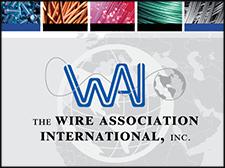Independent Study Finds Elevated Work Platform with ResinDek® Flooring Up to 34% More Cost Effective Than Concrete
In an independent research study, ResinDek® composite engineered wood floor panels from Cornerstone Specialty Wood Products, LLC® (www.resindek.com) were found to be up to 34% more cost effective than concrete when used as a decking surface for an elevated work platform.
In an independent research study, ResinDek® composite engineered wood floor panels from Cornerstone Specialty Wood Products, LLC® (www.resindek.com) were found to be up to 34% more cost effective than concrete when used as a decking surface for an elevated work platform. The report, "Work Platform Deck Cost Comparison Study," was prepared by Matt Rescorla of Rescorla Engineering, a registered professional engineer and 30-year veteran of the material handling industry whose primary design focus is on work platforms, mezzanines and related structures.
In his evaluation, Rescorla compared the costs associated with the construction of three hypothetical elevated work platforms measuring 225 x 225 feet and utilizing different flooring surfaces and framing shapes:
• ResinDek panels over metal deck with cold-formed, c-channel framing
• Concrete over metal deck with cold-formed, c-channel framing
• Concrete over metal deck with hot-rolled, wide-flange framing
The work platforms were designed for a live load of 125 pounds per square foot and the appropriate dead and seismic loads for each platform. Both concrete options specified a 3-inch concrete thickness above the 1.5-inch corrugated deck ribs. The c-channel framing design options sought to maximize the most efficient joist spacing and member gauge; the wide-flange framing option sought to maximize joist spacing by utilizing the maximum deck capacity. All three options are typically considered when comparing the potential designs for an elevated work platform.
Based on both the design calculations and the industry standards for live load deflection limits, Rescorla created three models using commercially available structural analysis software. He then obtained three estimates for the concrete work and averaged the costs. His cost comparison calculations included:
• Interior footings (material and installation)
• Columns, joists and metal floor deck (material)
• Columns, joists, and metal floor deck (installation)
• ResinDek or Concrete (material and installation)
• Total freight to site for all material
Based on the calculations, Rescorla concluded that constructing an elevated work platform with ResinDek panels was more cost effective than either of the concrete flooring options. Overall cost per square foot (excluding freight) was 31% and 34% higher for the two concrete options, respectively. In the report Rescorla noted that, on a percentage basis, the largest contributor to this gap is the cost of the concrete with installation. Based on the installed cost, he wrote, using concrete as the elevated work platform flooring surface is 77% higher than the cost of ResinDek panels.
Another contributor to the higher cost of concrete construction is the cost of the additional steel joists and larger footings required to support the heavier concrete platform options: 33% and 26% higher than ResinDek. The installation costs for the concrete designs' additional and heavier steel framing members are also higher due to the increased number of joists needed to support the heavier concrete material, the special equipment and rigging necessary to handle the components, and the additional manpower required.
Validating Rescorla's conclusion that ResinDek panels are more cost effective than concrete when constructing an elevated work platform are the findings of a second research report, "Optimizing Space and Supporting Automation with Elevated Flooring and Mezzanines." Among the information gathered in this study — conducted by Peerless Research Group (www.peerlessresearch.com) on behalf of Modern Materials Handling (www.mmh.com) for Cornerstone Specialty Wood Products — was the opinion of elevated work platform Systems Integrators regarding the relative value provided by each of these two decking options. In comparison to concrete (and a third option: bar or plank grate), Systems Integrators considered composite engineered wood flooring to be:
• The most flexible for future changes (77.8%)
• The easiest to install (70.0%)
• The best value (66.7%)
• The most level surface (55.6%)
• The fastest to install (50%)
The "Work Platform Deck Cost Comparison Study" is available at https://www.resindek.com/independent-cost-comparison-resindek-and-concrete. Additionally, the "Optimizing Space and Supporting Automation with Elevated Flooring and Mezzanines" report can be downloaded at https://www.resindek.com/research-compares-elevated-flooring-options. For more information about ResinDek panels, contact 513.772.5560 or visit www.resindek.com.
# # #
ABOUT CORNERSTONE SPECIALTY WOOD PRODUCTS, LLC
For more than 20 years, Cornerstone Specialty Wood Products, LLC (www.resindek.com) has been in the forefront of research and development in the field of engineered wood floor panels for the material handling industry. In 1994, Greg Doppler, company founder and president, invented the ResinDek panel, which has become the premier mezzanine flooring panel product sold worldwide today.
Featured Product

